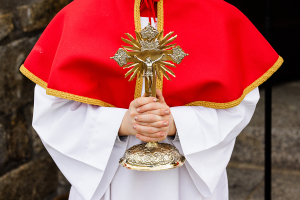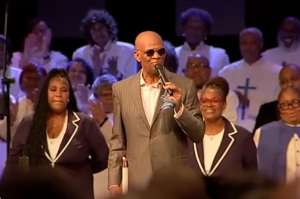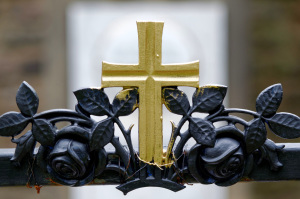More is More When it Comes to Education and Religion, Study Says
New Study Reveals the Highly Educated Are More Religious Today
Conventional wisdom has it that there is a growing relationship between a person's level of education and their religion. Most people assume that the more a person is educated, their level of religion goes down because they start forming ideas of their own.
However, a new study indicates that the opposite may be true.
Sociologist Philip Schwadel from the University of Nebraska-Lincoln (UNL) studied this phenomenon. He discovered that people today tend to become more religious as they further their education.
Schwadel, the author of the new study, will publish his findings in the journal Review of Religious Research.
He said studying the effect of education on religion shows the complexity of defining it. For one thing, contrary to a popular misconception, education has a positive association with church attendance.
Schwadel said: "It all falls down to what you consider to be religious."
"If it’s simply attending religious services, then no, highly educated people are not less religious. In fact they’re more religious.'
His study cites that each year a person adds to their education, he or she is 15 percent more likely to attend religious services. The catch in his study determined that when an individual attends a church service, they are less likely to take Scripture literally.
"If it’s saying the Bible is the literal word of God and saying that only one religion is the true religion, then they are less religious,' he said.
Research tells us that education has a positive impact on not only churchgoing habits, but devotional practices, and support for religious leaders.
Schwadel determined that with each additional year of education, a person is only 9 percent more likely to read the Bible “at least occasionally.”
The main difference between the educated and the uneducated is that educated people seem to be more open to other ideas including the divine. They basically have a looser approach to faith.
"Education influences strategies of action, and these strategies of action are relevant to some religious beliefs and activities, but not others," said Schwadel,
"The effects of education on religion are not simple increases or decreases. In many ways, effects will vary, based on how you define religion."
While approaching religion in a less strict manner may indicate that educated people do not take their faith as seriously as those without education, the study found that this is not the case.
In fact, Schwadel discovered that dropping religion altogether was not a popular option for highly educated people. Having a greater level of education was associated most often with converting to mainline, non-evangelical Protestant denominations.
What educated people are more likely to question is, however, the role of religion in a secular society.
They are more opposed as to what may be seen as religion being forced upon society. On the other hand, they are very opposed to hushing the voices of religious leaders on societal issues and supported those leaders’ rights to influence people’s votes.
"The results suggest that highly educated Americans are not opposed to religion -- even religious leaders stating political opinions," Schwadel said. "But they are opposed to what may be perceived as religion being forced on secular society."
His study, just released, does confirm that religion plays an important role in the lives of highly educated Americans. And religion still remains relevant to Americans of all education levels.
“Sometimes this is where language limits us,” said Beth Katz, the executive director of Project Interfaith, said in a statement.
“We have to be very careful about making assumptions about what a person believes, and how they practice, or how the role of faith and spirituality may play in their life simply based on the term they use to identify themselves.”
Katz said the looser, and changing, definitions of religious identity, at least among young people, are coinciding with a greater tolerance of religious diversity.
“That’s in part because young people have grown up with greater levels of religious diversity present in front of them in the media, and in their communities, and in schools,” said Katz.
"Exposure to different faiths and the different definitions of faith, should help us, no matter how we define ourselves, to get along."
Schwadel's study relied heavily on the General Social Survey, which provides cumulative data collected regularly between 1972 and 2010. The research will be published in an upcoming edition of the journal Review of Religious Research.




























